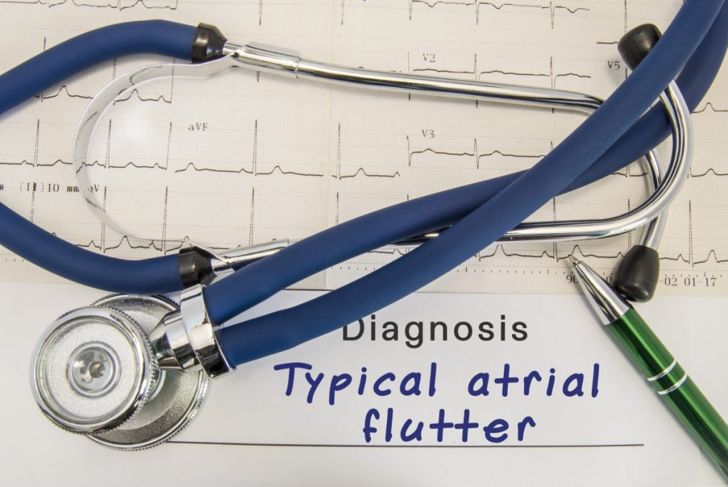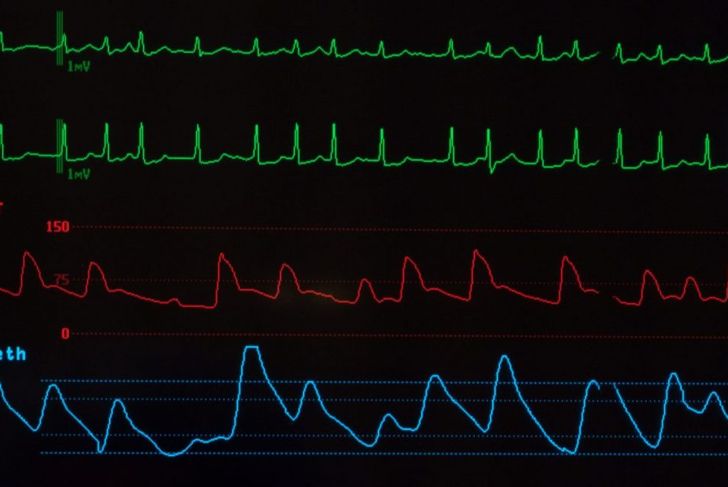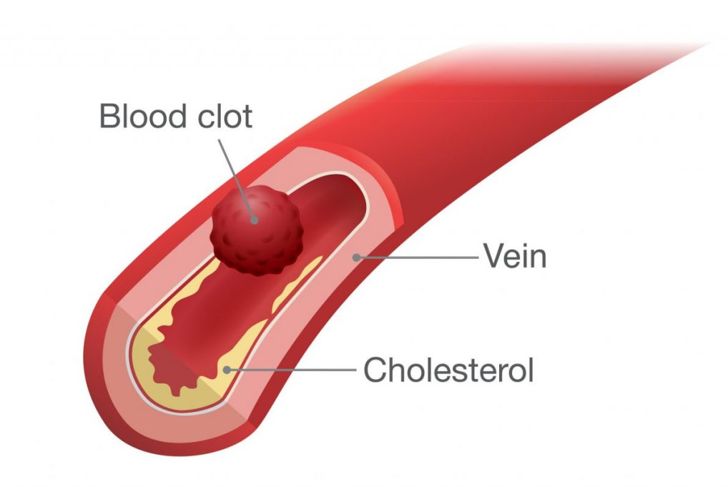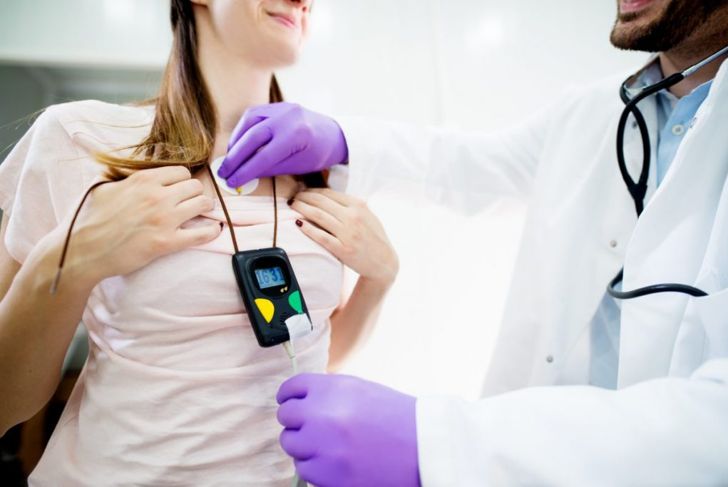Atrial flutter is a type of tachycardia — abnormally fast heartbeat — in which the atria beat too rapidly. This condition results from disturbances in the heart’s electrical system. While similar to another type of tachycardia, atrial fibrillation, in atrial flutter, the heart beats in a more organized and less chaotic way than it does in atrial fibrillation. Though an individual with atrial flutter may not experience any symptoms, this type of tachycardia can cause serious complications including heart failure and stroke. People can typically avoid complications with proper treatment.
How Does the Heart Normally Beat?
The heart contains four chambers. The two upper chambers are called atria while the two lower chambers are called ventricles. The sinus node, located in the right atrium, is the heart’s natural pacemaker. It creates electrical impulses that initiate each heartbeat. From the sinus node, the electrical impulse goes across the atria, causing the muscles to squeeze and pump blood into the ventricles. The electrical impulse reaches the atrioventricular node. The atrioventricular node slows down the electrical impulse so the ventricles can fill up with blood. The ventricle muscles then squeeze and pump blood to the rest of the body.
What is the Difference Between Atrial Flutter and Atrial Fibrillation?
Flutter and fibrillation are similar in nature and can actually occur at the same time. Flutter occurs when the atria beat too rapidly — faster than the ventricles — causing the heart to beat out of sync. In fibrillation, the atria beat rapidly and erratically whereas, in flutter, the atria beat in a more organized manner.
What Are the Symptoms of Atrial Flutter?
Some individuals won’t have any symptoms, but this type of tachycardia still renders the heart less efficient. Symptoms of this condition include chest pain, shortness of breath, fainting, dizziness, and heart palpitations. People with it will experience these symptoms in a variety of situations, but it is worsened by stress.l
What Are the Complications of Atrial Flutter?
Initially, it is not life-threatening. However, tachycardia decreases the heart’s ability to pump blood to the rest of the body effectively and, as a result, blood clots may form in the heart. If a blood clot leaves the heart, it can cause a stroke. With time, this condition weakens the heart muscle and may contribute to heart failure. Additionally, it can eventually develop into atrial fibrillation.
Who is at Risk?
Several medical conditions can put someone at a higher risk. These conditions include diabetes, hyperthyroidism, sleep apnea, lung disease, coronary artery disease, heart valve disease, heart disease, and high blood pressure. Additionally, as an individual ages, his or her risk increases. Lifestyle choices also influence one’s risk for the condition. Specifically, smoking, regular binge drinking, taking diet pills, participating in intense athletic training, and obesity increase the risk of atrial flutter. Anxiety and stress, recent surgery, and taking certain medications are also known risk factors for this condition.
What Causes Atrial Flutter?
The condition is caused by an abnormal electrical circuit develops in the atria following heart changes or damage to the heart muscle. The new circuit takes over, leading to the atria beating rapidly and out of sync with the ventricles. Coronary heart disease is one common cause and develops when the heart’s arteries become blocked by plaque. Coronary heart disease can damage the heart muscle, blood vessels, and chambers. Atrial flutter can also occur after open-heart surgery, which can scar the heart, inhibiting electrical signals.
How is Atrial Flutter Diagnosed?
To diagnose atrial flutter, doctors use an electrocardiogram (ECG) to record the heart’s rhythm through small patches placed on the chest, attached to a monitor. Alternatively, a Holter monitor, a battery-powered portable ECG, can be worn continuously for one to several days to measure heart rhythm. An echocardiogram may be used to look at the blood flow through the heart and blood vessels.
How Do Doctors Treat Atrial Flutter?
Medications such as beta-blockers and calcium channel blockers can be used to slow heart rate. Antiarrhythmics may be prescribed to prevent the heart from beating in an abnormal rhythm. Anticoagulants (blood thinners) may help prevent blood clots from forming in the heart. When medication is unsuccessful, cardiac ablation can control heart rate and rhythm by destroying the abnormal circuit causing atrial flutter.
How Can I Prevent Atrial Flutter?
One may be able to prevent this condition by controlling or avoiding certain risk factors. For instance, maintaining a healthy weight through diet and exercise, drinking only in moderation, avoiding smoking, and discontinuing the use of tobacco products can reduce one’s risk.
What’s the Prognosis?
Medication is typically successful for managing the symptoms. The condition can recur even with treatment. To reduce recurrence, people with a history of it should take medications as prescribed and manage their stress levels. If left untreated, it can lead to serious complications, including developing into atrial fibrillation.

 Home
Home Health
Health Diet & Nutrition
Diet & Nutrition Living Well
Living Well More
More




















